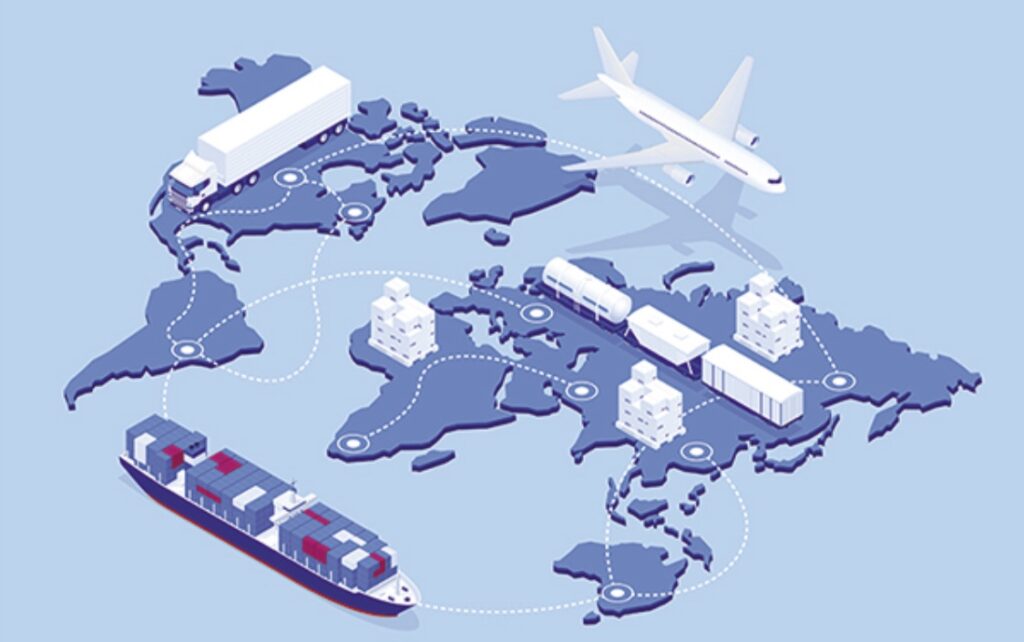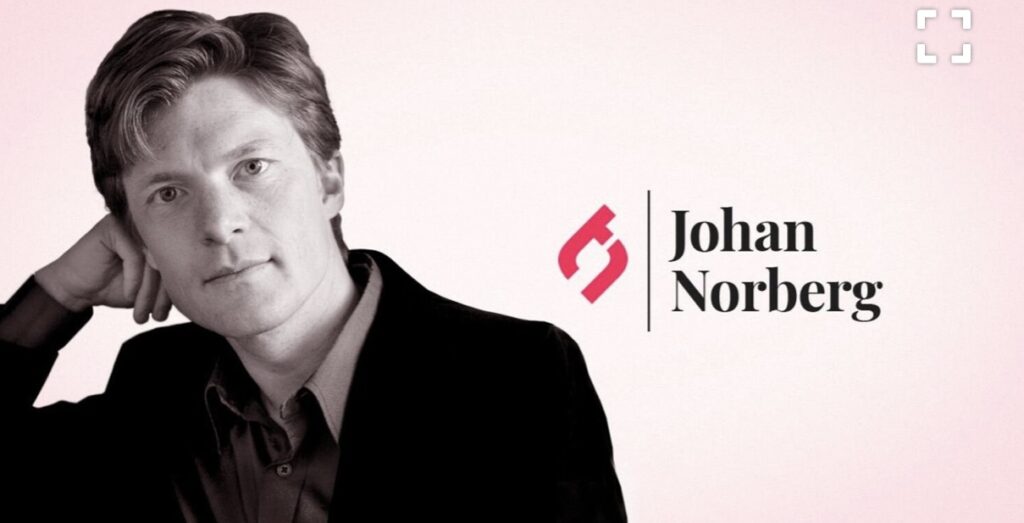Why free trade always wins – even during the pandemic
My friend Johan Norberg, who is a senior fellow at the Cato Institute, researcher, expert and author of several globally acknowledged books on globalization, entrepreneurship, and individual liberty, has published an excellent article about how free trade also survived the pandemic and will come out stronger on the other side. The article is written in Swedish, but here below is an unifficial translation.

Countries that have a strong trade dependence have fared better during the pandemic. Contrary to how it sounded, namely that the pandemic revealed the risks of global value chains. It writes Johan Norberg.
What did we learn from the pandemic? That “globalization has gone too far”, says the French EU Commissioner Thierry Breton. At home, the French government used the EU Recovery Fund to pay 620 companies to repatriate production. Ideally, they want to see the same thing at European level.

That did not surprise anyone. France always meets the four riders of the apocalypse by riding out on a small protectionist stick horse. But the worrying thing is that the French line is gaining more and more attention in an EU without the United Kingdom.
Germany has begun to falter and now supports the lax talk of “strategic autonomy”. It started under Merkel, but risks continuing under the new coalition government, where the Greens have got the trade issues. This can be seen in the European Commission’s new trade policy strategy, which has some constructive proposals to address the barriers to trade for others, but is almost exclusively defensive. Here they are looking in vain for offensive liberalization among all climate tariffs, regulations and industrial policy.
It is said that the pandemic revealed the dangers of global value chains and that we need more self-sufficiency. It’s a complete misreading of the pandemic. WTO statistics show that countries with a high level of trade dependence, on the contrary, did better than others during the crisis.
The idea of more European self-sufficiency contradicts everything we have just learned. The countries that failed during the pandemic were precisely France and Germany, which during the most critical period introduced export bans for protective equipment. France even seized equipment on its way from Mölnlycke’s distribution center in Lyon to rescue Italy and Spain.
Natural disasters, conflicts and epidemics generally strike a certain region at a certain time. If most of the production is concentrated there, the conveyor belts will stop when we need them most. Like France, victims will plunder everything they come across. It is only through established trade relations with other parts of the world that we can import when the need is greatest.
What saved us during the pandemic were the so-called global supply chains. In March 2020, EU countries’ imports of protective clothing from other EU countries fell by 25 percent, but at the same time imports from countries outside the EU increased by as much as 44 percent. Imports of hand alcohol increased by 278 percent and of gas masks by 430 percent.
In other words, free trade did not fail, it immediately responded to an extremely increased demand. There are shortcomings in many areas now, such as semiconductors, but not because value chains have been broken, but because they need to scale up rapidly to meet increased demand, while having to round out new regulations, covid restrictions and trade wars. In fact, the WTO’s preliminary figures show that trade volumes are now higher than before the pandemic.
The recovery is jerky and suddenly a new covid wave can hit a certain country. We need transparency to spread the risks and quickly find alternative suppliers. Some companies can profit from repatriating production, but only they can judge, based on their local knowledge and needs. No one size fits all.
Of course, there are risks of being overly dependent on an individual country, especially if it happens to be China. But an EU analysis of more than 5,000 products shows that only 34 of them apply. It is often about metals and minerals, and if we fear that dependence, there is in many cases a quick solution: Make it easier to extract them in Europe.
Ursula von der Leyen is happy to say that she leads the first “geopolitical” EU Commission. Unfortunately, this emphasis on the role of a foreign policy player has served as an excuse for neglecting measures that increase competition and productivity at home. It is to harness the geopolitical chariot in front of the growth horse. Economic dynamism tends to strengthen countries more in the international arena than ever so solemn words about belonging and determination. And few measures are more important to the economy than deepened free trade.
This article was written in Swedish and machine translated to English
Source: TN
You must be logged in to post a comment.